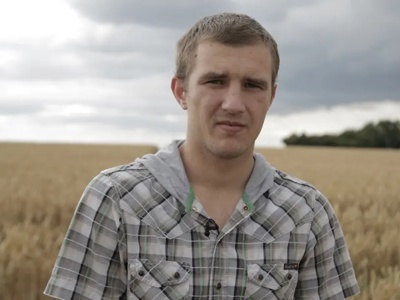
Modern slavery and trafficking
At Leigh Day, we act for people who have been victims of trafficking and modern slavery in civil claims or claims in the employment tribunal. Please get in touch to speak confidentially to a member of our team by calling 020 8038 0755 or contact us confidentially using this form so that we can contact you at a convenient time.
what the directories say
‘Leigh Day are without doubt the most important employee firm. The impact the team has had upon modern employment litigation is unrivalled.’"
Legal 500 2021
Modern slavery is one of the most serious human rights issues in the modern world; 136,000 people are estimated to be living in modern slavery in the UK alone.
We act for people who have been victims of forced labour in varied environments, such as in domestic work in nail bars, car washes, construction sites, agriculture and the food processing and hospitality industries.
One of our cases [AT & Ors v Dulghieru & anor [2009] EWHC 225 (QB)] involved the plight of four young Moldovan women who had been tricked and trafficked to the UK, and were enslaved for the purposes of sexual exploitation.
The women were held captive in brothels and forced to have sex with men at the discretion of their captors. They were harassed and they and their families in Moldova were threatened with violence. The women were often subjected to verbal and physical abuse by the men with whom they were forced to have sex.
Once they had been freed, the women brought a civil claim against their traffickers. The women's claims were successful, and they were awarded more than £600,000 in damages for pain, suffering and loss of amenity, unlawful detention and financial losses they sustained as a result of their mistreatment.
You can talk confidentially to a member of the trafficking team, who will understand and will tell you if we can help. Please fill out our enquiry form and someone will get back to you shortly.
Modern slavery FAQs
There is no single way to identify someone who has been trafficked for forced labour purposes, but some common indicators, which have been identified by the International Labour Organisation (ILO), are:
- Withholding wages and/or long hours without breaks
- Forced isolation
- Withholding identity documents (such as a passport)
- Threats of violence or reporting to the authorities.
Human trafficking is often hidden from view. Unfortunately, in the UK, only a tiny percentage of victims of forced labour, forced sexual exploitation and forced marriage are referred through the National Referral Mechanism (NRM), which is the framework for identifying victims and ensuring they receive appropriate care in the UK.
We understand that people face complex issues in these situations and that there are often pressing concerns involving the NRM process.
Our view is that it is crucial that people who have been victims are able to consider seeking a legal remedy through the civil courts or employment tribunals.
We are able to advise about options for seeking compensation through these routes. Importantly, legal aid may also be available in relation to advice and assistance.
We understand that the most immediate priority for most victims of slavery and trafficking is to have access to a safe and secure status in the UK, the ability to obtain decent accommodation and a source of steady income.
Too many victims of trafficking are forced to return to their previous exploited roles because of the lack of such support. If you are a trafficked person or a victim of slavery you may well need legal advice on a range of issues such as immigration, crime. housing and the welfare provisions available in this country.
However, you can also use the civil law to hold your trafficker or those individuals or companies who profited from your exploitation, to account, to get answers, and to seek compensation for the wrong you’ve suffered.
Access to justice for individuals who have been trafficked is crucial to effectively combat trafficking. Under UK law, people can seek compensation in four different ways:
- A compensation order in criminal proceedings;
- An application to criminal injuries compensation authority;
- Civil litigation
- In an employment tribunal.
Compensation can help rebuild lives: enabling access to education, training, medical treatment and therapy. It promotes rehabilitation and prevents re-trafficking. The very act of deciding to sue your abuser can be your first step to taking back power.
Compensation can be sought for the following:
- Unlawful imprisonment
- Intimidation/harassment
- Assault/trespass to the person
- Negligence
- Breach of contract
- Unfair and constructive dismissal
Compensation claims also punish perpetrators of trafficking and slavery by hitting them where it hurts. Financial penalties act as a deterrent, making it less likely that others will have to go through the same experiences you have gone through.
Far too often, perpetrators escape with the profits and proceeds of their abuses. We try to use the full force of the law to freeze perpetrators’ assets and ensure that they are available to pay compensation.
Leigh Day also specialises in holding corporations to account for human rights abuses. We can bring claims against companies profiting from trafficking and forced labour, even where the perpetrator has disappeared.



